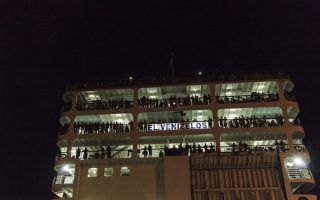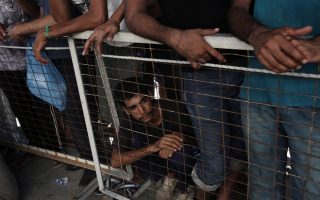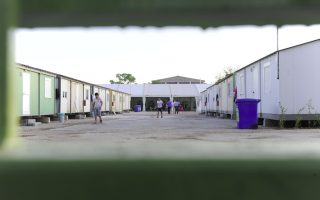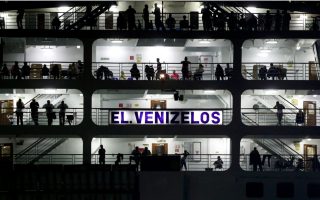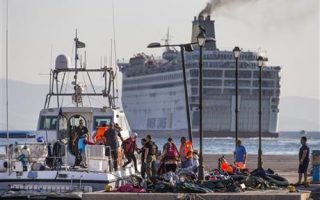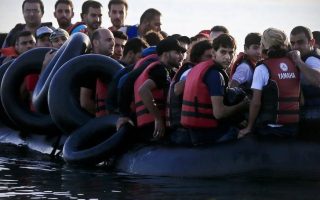Syrian refugee ship arrives on Greek mainland, migrants move on
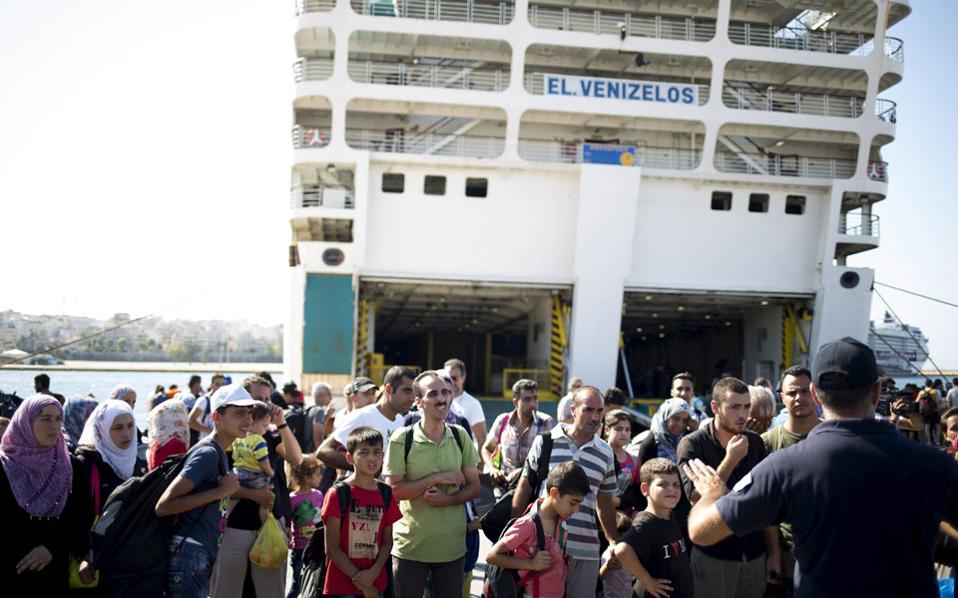
A car ferry carrying just over 2,400 Syrian refugees arrived on the Greek mainland on Thursday as a wave of migrants fleeing conflict and poverty continued unabated, straining a country which is already in economic crisis.
Many of the Syrians made 'V' for victory signs as they disembarked in the port city of Piraeus from the ship, chartered by the Greek government to ease conditions on islands in the eastern Aegean, where migrants are arriving on inflatable dinghies and small boats from nearby Turkey.
Greece has been found largely unprepared to deal with the migrant crisis in recent weeks, prompting criticism from aid agencies. Arrivals in July totalled 50,000, far outstripping the figure for the whole of 2014.
But many of the Syrians who arrived at Piraeus, which is part of the sprawling Athens conurbation, said they had no intention of staying in Greece as they flee their country's civil war. They plan instead to head almost immediately to the country's northern border via the second city of Thessaloniki, hoping to move on to other European countries.
"Which is the bus to Thessaloniki?" asked 28-year-old Jwan from the Syrian city of Aleppo as he and hundreds of others milled on the Piraeus quayside, before heading into central Athens. Trains and buses depart from there to Thessaloniki, which lies close to the borders of the Former Yugoslav Republic of Macedonia and Bulgaria.
FYROM is already overwhelmed by migrants trying to get to northern Europe where they hope to find more help, opportunities and jobs.
Apart from buses on hand to take the refugees from the port to the Piraeus metro station, nobody appeared to be available to offer guidance on where to go.
The car ferry Eleftherios Venizelos departed Kos on Wednesday and stopped at several other islands to pick up more Syrians on the voyage to the mainland.
Jwan had travelled with his two sisters from Turkey to Lesbos. "We don't want to stay in Greece, we want to go to Germany," he said.
Tickets to Thessaloniki
Some of the refugees showed tickets for which they had paid 60 euros ($67) for a journey directly to Thessaloniki.
Greek officials had initially said the ship would head there and at one point a bus company told Athens News Agency that it would take the refugees from Thessaloniki to the Greek-FYROM border town of Idomeni.
But then the vessel abruptly changed course for Piraeus. It was unclear why.
Sneaking across into FYROM by foot has become a popular route in recent years for migrants to make their way to richer northern European countries. However, any plan to dump refugees close to another country's border could have left Greece open to criticism that it was effectively shifting the problem on to its neighbors.
"First they told us the ship would go Thessaloniki, then Athens," said Darek Khouja, 18, also from Aleppo. "I want to go to Germany. It has very good universities and I want to continue my studies, get on with my life," Khouja said.
He and his friend Kamel Farezu, 20, both engineering students, travelled together to Greece from Turkey. "The situation in Aleppo is terrible, we had to leave," Khouja said. Both left their parents and family behind.
The number of asylum-seekers and refugees to Germany will quadruple to a record 800,000 this year compared with last, more than twice as many as the 300,000 new arrivals forecast in January, the Berlin government said on Wednesday.
Thousands of other migrants from Asia, Africa and elsewhere in the Middle East are sleeping in abandoned buildings or in the open on some Greek islands, particularly Kos.
Arrivals in Greece last week were equal to almost half the number for all of 2014 and brings the total for this year to 160,000. This has strained an ill-prepared reception system that relies heavily on volunteers. The Syrians received priority in boarding the ferry as they are regarded as refugees from their country's four-year-old civil war.
Arrivals from other countries such as Iran, Afghanistan and Pakistan, regarded as economic migrants, are camping out in filthy conditions, leading to sporadic clashes and brawls.
[Reuters]
